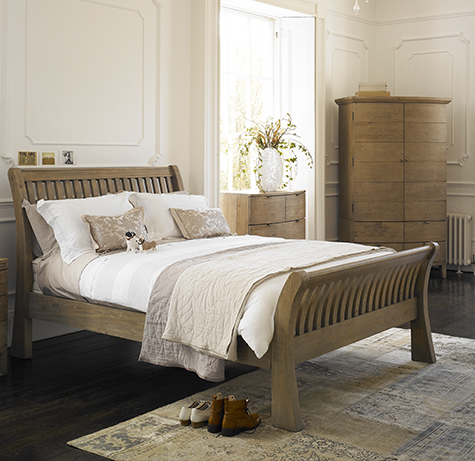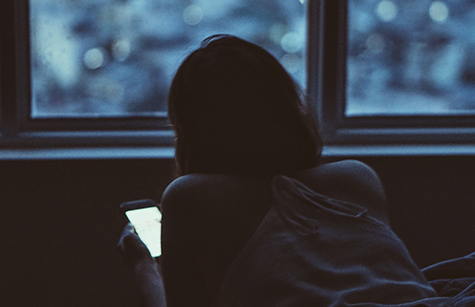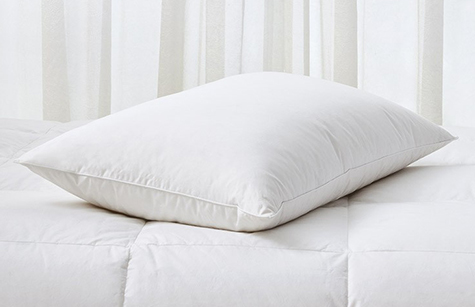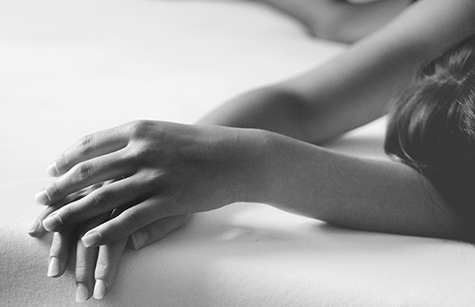1. YOUR BEDROOM
If you’re having trouble sleeping, one of the first things to consider is your bedroom. In order to get a restful night’s sleep you need the right setting, which means a clean, peaceful and welcoming room. Many of us are unknowingly sleeping in a bedroom that’s simply not fit for purpose, and that environment could be the key cause of a restless night. Fortunately, it’s relatively easy to transform your bedroom into a space that encourages a peaceful night’s sleep. Here are a few tips:
Make your room completely dark; use an eye mask, or blackout blind if need be. Maintain an ambient temperature in your room, too hot or too cold and you won’t sleep soundly. We recommend a cool temperature around 16-18 degrees.
Keep your bedroom neat and simple. A tidy room makes for a peaceful mind, so try to clear any clutter. Make the space your own; family photos, ornaments and flowers will make the room pleasant and will help you to relax.

2. YOUR BED
The foundation of a great night’s sleep is a comfortable bed. The right mattress can make a huge difference between a restful and restless night, saving you from fatigue and irritability for the rest of the day. An unsupportive mattress will encourage a poor sleeping posture, which prevents you from good sleep. If you regularly wake up with aches and pains, it’s probably time to change your mattress. The Sleep Council suggests buying the biggest bed you can afford and will fit your space. We stock a huge selection of beds and the experts in our Sleep Centre can help you make the right decision. Before your visit, why not take a quick look at our bed buying guide?

3. GADGETS & DISPLAYS
During our daily lives, we are continuously fed information through TV, radio, social networks and other streams of media. Say no to technology in the bedroom! That means avoiding televisions and computers. Having access to these will urge you to switch on when you can’t drift off, which in turn can lead to even more disturbed sleep. LED displays are particularly troublesome when it comes to getting a good night’s sleep. Try to avoid alarm clocks with digital displays.

4. YOUR PILLOW
Waking up in the morning with a stiff neck and feeling exhausted? Sleeping on the right pillow can make a huge difference to how well you sleep and also how refreshed you feel the following morning. One of the most important factors in choosing the right pillow is your sleeping style. This determines the required pillow support level (thickness) to adequately support your head and align your neck with your spine.
There are many pillows designed to help people overcome particular sleep problems. These could include neck pain, back pain, snoring and more. If you suffer from allergies you may wish to consider a hypo-allergenic synthetic pillow. Why not pop into our store and have a word with one of our experts? You can view our full range of pillows online too.

5. DIET
As any coffee lover knows, caffeine is a stimulant that can keep you awake. So avoid caffeine (found in coffee, tea, chocolate, cola, and some pain relievers) for four to six hours before bedtime. Similarly, smokers should refrain from using tobacco products too close to bedtime. Eating big or spicy meals can cause discomfort from indigestion that can make it hard to sleep. If you can, avoid eating large meals for two to three hours before bedtime. Try a light snack 45 minutes before bed if you’re still hungry.

6. EXERCISE
Moderate exercise on a regular basis, such as swimming or walking, can help relieve some of the tension built up over the day. Make sure that you don't do vigorous exercise, such as running or weight training, too close to bedtime though, as it may keep you awake. When it comes to exercise, the most important thing is to feel fitter and healthier. If you are experiencing sleeping problems, try changing the type of activities you do. Yoga is renowned for its relaxation and sleep benefits, while moderate-aerobic exercises have been found to help people fall asleep quicker.

7. STRESS & WORRY
Scientists have found a direct correlation between anxiety and rhythm of sleep. When a person is anxious, their heart rate increases, which causes the brain to ‘race’. An alert mind produces beta waves, making you far too stimulated to sleep. To make matters worse, an active brain triggers other worries, so it’s even harder to achieve sleep.
There are several techniques to banish anxiety and calm your heart rate. Cognitive behavioural therapy is one of them, helping people to ‘unlearn’ thought processes through psychological treatment. You can also manage your heart rate by placing your hand on your heart and listening for the beating. Breathe in deeply for four seconds, and then breathe out slowly. Repeat this until you can feel your heart rate slowing, which in turn slows down your busy brain activity.

